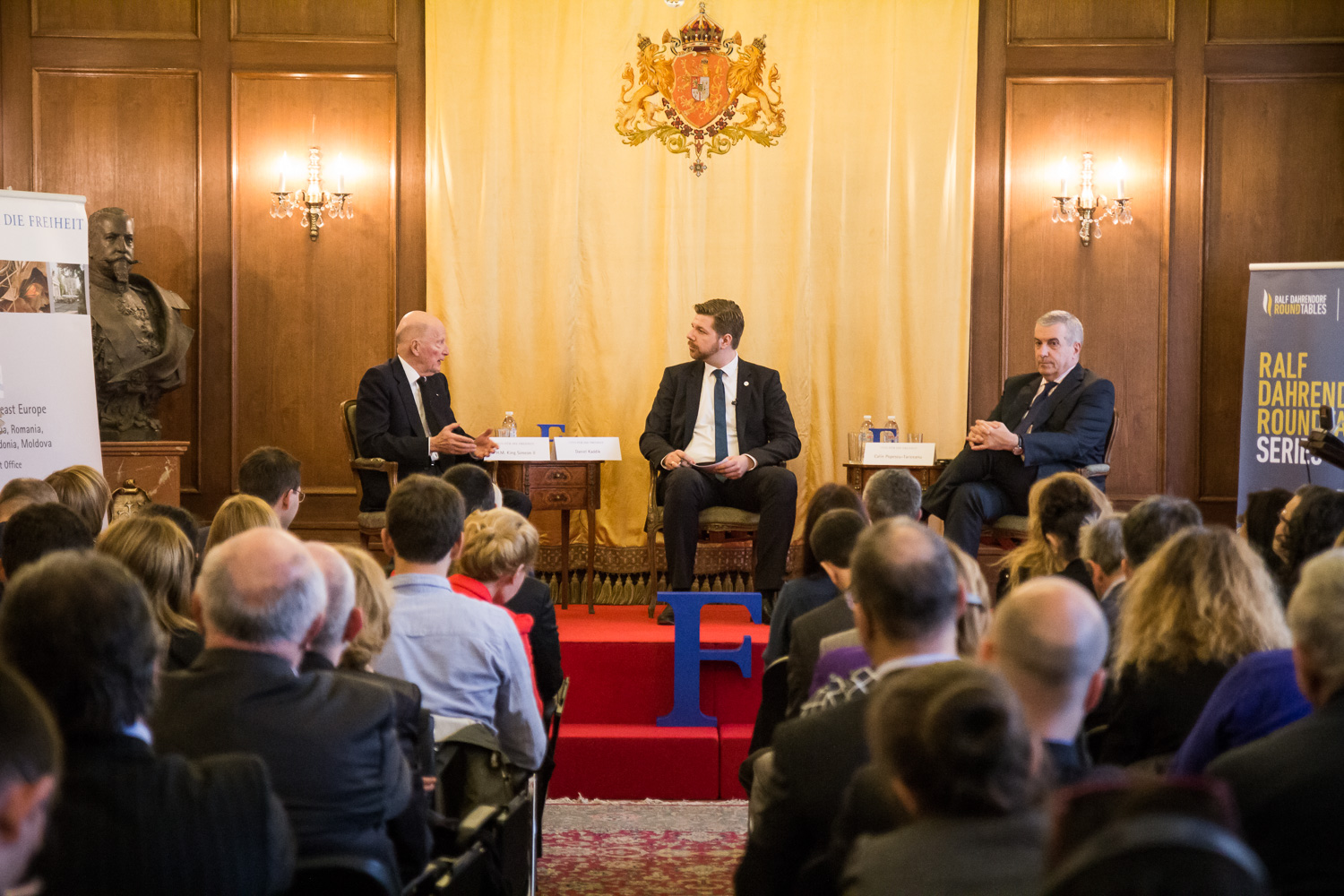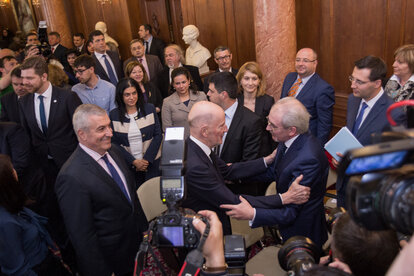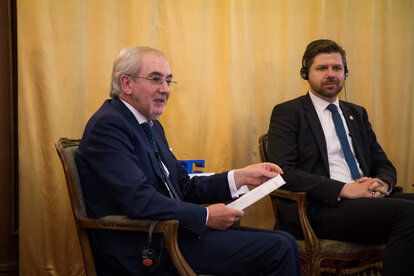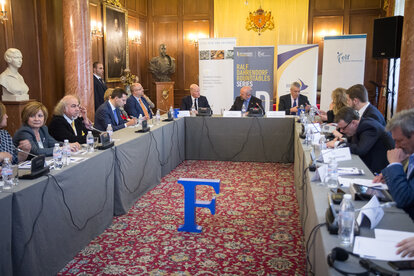Ten Years of EU Challenges. Lessons Learned for the Liberals of Southeast Europe

“Let us learn lessons from the past and move the EU forward.” This was the general conclusion drawn from the public dialogue between two former Prime Ministers: H.M. King Simeon II of Bulgaria and Călin Popescu-Tăriceanu of Romania. Inspired by the European idea, which is primarily liberal in nature, they signed their countries’ Association Agreements to the EU exactly ten years ago. A commemorative meeting was organized on 16th April 2015 in the historical palace of “Vrana” near Sofia, and it proved to be the high point of an entire event, entitled “Ten Years of EU Challenges. Lessons Learned for the Liberals in Southeast Europe”. The Project Office for Southeast Europe of the Friedrich Naumann Foundation for Freedom organised this event in collaboration with the Liberal Institute for Political Analyses and the European Liberal Forum, which gathered together former ministers, experts, journalists, and current legislators from the liberal family in the two Eastern European countries.
“The lesson has still not been learned”, remarked Călin Popescu-Tăriceanu, who is presently the President of the Romanian Senate and leader of the Liberal Reformist Party. “The two countries need to learn to work together in order to achieve progress and to promote more successfully their interests within the community”, clarified Tăriceanu. According to him, corruption undermines public confidence in institutions and in such an environment; populists easily take over from the rational. Yet, there is a growing understanding among Romanian society of the need for progress and democratic change.

Asked by the moderator, Daniel Kaddik, if there is a difference between Bulgaria before and after the EU accession, H.M. King Simeon II made it clear that after so many years of isolation, Bulgarians were sceptical of how deeply they feel they belong in Europe. The freedom to travel, live and work in the EU, and to feel part of a community of values, however, has raised their self-esteem and improved their attitude towards the European processes. Concerning the future of the EU, he also commented that “after the ‘big-bang’ enlargement, no further extension to the Southeast was anticipated. Yet, the Union has continued to enlarge and it is high time for all the member states to accept this as an irreversible process. Nowadays, there are no conflicts or disputes between EU members and such long-lasting good relations are grounds for steady economic progress. This is the lesson to be learned by all.”
“We, the liberals are the only ones who firmly support the enlargement of the European Union.”

Along this lines Lyutvi Mestan, leader of the liberal party Movement for Rights and Freedoms, opened the next panel. He underlined the necessity for the further enlargement of the European Union as the only option which could guarantee stability in the Western Balkans and prosperity in Eastern Europe. “We have to change our chip,” quoted Mestan King Simeon`s memorable saying from the time when he was still in politics, adding “otherwise we cannot progress, we cannot be. We have to change our perception of the EU and our role in it.”

“Restarting the Liberal Idea in Southeast Europe’’ was the topic for day’s second part, and this time was conducted in the format of a RDR discussion table. Distinguished liberal politicians and think-tank representatives from Bulgaria and Romania, among them H.M. King Simeon II, Călin Popescu-Tăriceanu, Lyutvi Mestan, Daniel Kaddik, Solomon Passi, Krassen Stanchev, Daniel Barbu and Rumyana Kolarova sparked a lively discussion. They all agreed that personal and state responsibility, as well as the further enlargement of the EU and the Schengen area, shall be core issues that will sustain and refresh liberalism in Southeast Europe.
More photos from the event: www.fnf-southeasteurope.org